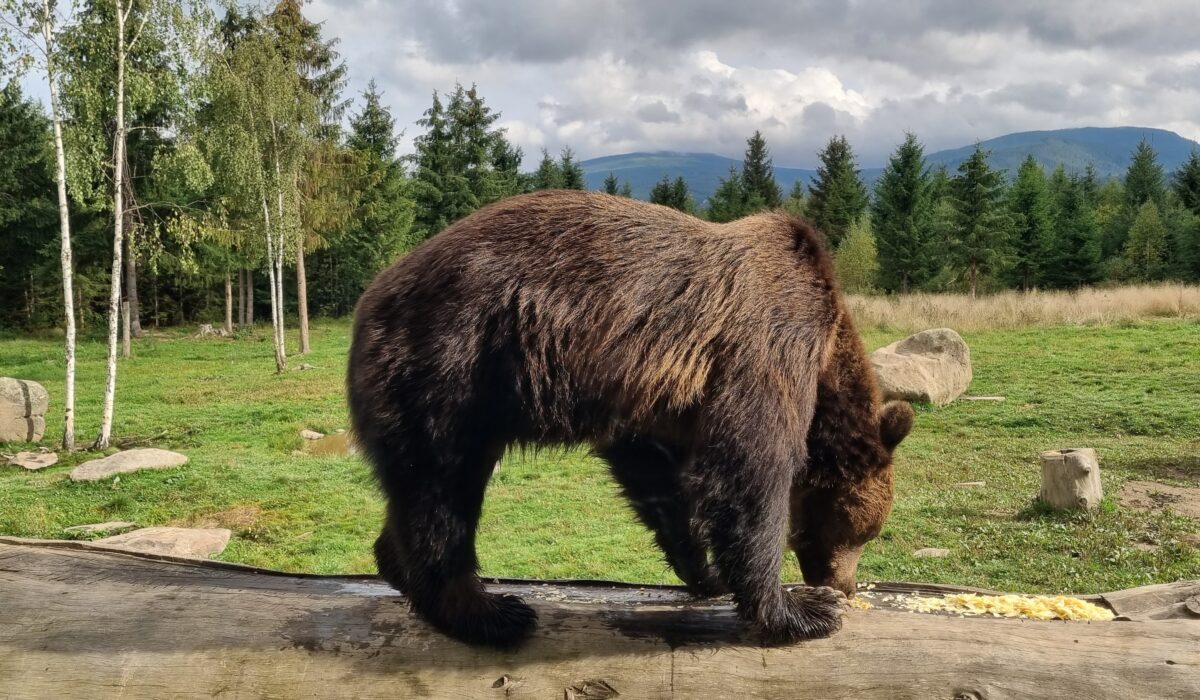Dr George Iordachescu will present work in progress at the Pathways Europe 2022: Human Dimensions of Wildlife Conference scheduled to take place in Wageningen on 19 – 21 October.
The conference is co-organised by the Cultural Geography Group at Wageningen University and Research and the Department of Human Dimensions of Natural Resources of Colorado State University. The conference theme is Sharing Landscapes, and the program is designed to address the myriad issues that arise as people and wildlife struggle to coexist in a sustainable and healthy manner.
Dr George Iordachescu will present the paper ‘Conviviality as a Pathway to Human-Bear Coexistence in the Carpathian Mountains’ as part of the Large Carnivores panel scheduled for Friday 21st October from 10:30 CET.

Abstract
Brown bears (Ursus arctos) are strictly protected within the European Union, although they are no longer considered endangered in countries spanning the Carpathian Mountains. At the same time, bears’ recent strong comeback poses significant challenges to understanding regional wildlife conservation policies, including new ways of fostering coexistence and dealing with human-wildlife conflict. By looking at study cases from Romania and Slovakia, the paper argues that emerging ideas of conviviality are an effective way to promote human-bear coexistence in the complex spatial contexts of the Carpathian region as they can bring to the fore existing and long-established practices of sharing the landscape.
European brown bears are considered charismatic subjects in need of protection when encountered ‘in the wild,’ and a nuisance when they get habituated or ‘lose their shyness’, switching from commodified attractions to manageable game species or objects of culling interventions performed by authorities. But bears transgress these categories all the time; therefore, they are important actors to think with about current challenges mainstream wildlife conservation faces, such as land abandonment, ecosystem restoration, or newer perspectives like rewilding. The paper spotlights a range of institutionally regulated coexistence practices (such as commons, transhumance, religious celebrations) by local groups and integrated into broader socio-ecological systems which transgress nature-culture dichotomies and are closer to what has recently been described as principles of conviviality. These principles will be critically scrutinised against more conventional approaches to brown bear conservation in the region, from active management and development of various forms of wildlife tourism to trophy hunting and attempts to address wildlife crime and bear trafficking.
The paper is based on six months of multispecies ethnographic engagements in various areas of the Carpathian Mountains of Slovakia and Romania, complemented by data obtained from twenty expert interviews and a range of knowledge exchange events with key stakeholders.
You can check details about the program here and follow the live updates on Twitter at @PathwaysCon & @George_Iorda.
